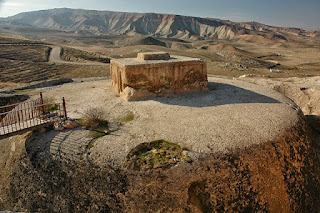One of my favourite words in Turkish is bahar, the season of spring. It can also mean blossom. I know a few women lucky to have Bahar as their name.
I was idly searching for more background about the word, when a sentence jumped out at me, claiming that bahar in Persian also means monastery. Apparently it came from Sanskrit vihar.
Spring and monastery. How delightful. Imagine a common word root growing out to a time of flowers, colour, and freshness, and to a place of balance, beauty, and spiritual refreshment.
Alas.
Turkish bahar is not related to Sanskrit vihar. At least not in any way I can find.
A Wikipedia article at this time of writing still maintains that there is a connection. I found no evidence to back it up.
Archeology and transliteration
The confusion may originate here: an ancient Buddhist monastery complex in northern Afghanistan.
The monastery is known as Nava Vihāra, or New Monastery. Great. Here is where things get interesting for anyone who cares about transliteration, the art of translating alphabets.
In Sanskrit, this is written as नवविहार.
With a basic Googled Sanskrit alphabet, you can transliterate this and sound out the word, going left to right. Something like "Na-va Va-ha-ra". I had never worked with Sanskrit, so this was a fun little exercise. I think the scythe shape in the middle divides the two words.
In Persian, it's written as نوبهار.
The Arabic alphabet is close enough for me to be able to muddle my way, right to left: "Now Behar". Hmm. Here is where I think internet knowledge went astray. B and V often get mixed up. I have known many Spanish speakers who struggle with the distinction in English.
In Persian, I read, you cannot start a new word with the و, which can be sounded as 'v' 'w' or 'oo'. So, instead of writing it as "Now Vehar", a Persian speaker heard the name and wrote it down as "Now Behar." And then people got poetic about vihar and bahar.
I understand the desire to connect. A woman once suggested that çok in Turkish (meaning 'a lot') related to the English expression 'chock-a-block.' I felt embarrassed for her ignorance. Then I was the one who went around telling people that computer in Turkish was 'information palace' (sayar vs. saray being my mistake).
Language facts are beautiful enough without us making them up, poetic as the possibilities may be.
Image source: Okar Research Blog

No comments:
Post a Comment
Yay for comments! Nothing mean please, and that means you, Anonymous.